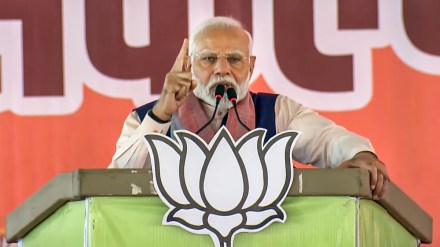The Bharatiya Janata Party (BJP) is intensifying efforts to reclaim power in Delhi after more than 25 years, with a focus on its “Parivartan” (change) slogan and a targeted campaign against the Arvind Kejriwal-led Aam Aadmi Party (AAP), highlighting corruption allegations.
Prime Minister Narendra Modi signalled the party’s ambitions during a “Parivartan Rally” in Rohini, where he declared, “Aapda (AAP) nahi sahenge, badal kar rahenge” (We won’t tolerate the disaster of AAP, we will bring change). The Delhi elections are due on Februay 5 and counting of votes will be held on February 8.
Here is a breakdown of the BJP’s current position in its bid to capture Delhi:
Strengths:
*The BJP maintains a strong organisational presence at the grassroots level, with outreach in all 70 assembly segments. The party has held numerous small meetings targeting various groups, including those in slums and unauthorised colonies, months ahead of the election.
*A sustained campaign has focused on issues like corruption, including the “Sheesh Mahal” and liquor scam, which led to Kejriwal’s resignation as Delhi chief minister. The BJP has also highlighted civic concerns such as water scarcity, polluted water supply, air pollution, waterlogging during rains, poor roads, and inadequate public transport.
*The BJP has capitalised on public dissatisfaction with AAP’s incumbency since 2015, issuing ‘charge sheets’ against AAP MLAs to highlight their local failures.
*The BJP secured all seven Lok Sabha seats in Delhi during the 2024 parliamentary elections, maintaining a strong position across most of the city’s constituencies.
Weaknesses:
*The BJP has struggled to identify a prominent local leader capable of challenging Kejriwal for the chief minister’s role.
*The BJP has yet to offer specific policy responses to AAP’s promises, such as honorariums for women and priests. However, Prime Minister Modi has assured voters that current government welfare schemes will continue.
*The party has a poor track record in reserved and minority-dominated constituencies, having failed to secure any of these seats in the 2015 and 2020 assembly elections.
Opportunities:
*BJP leaders believe the party is in the best position in years to end its 25-year absence from power in Delhi, fuelled by Kejriwal’s tarnished image due to corruption charges and public dissatisfaction with AAP’s governance.
*A victory would not only diminish Kejriwal’s national political influence but also strengthen BJP’s foothold in Delhi, backed by the support of the central government.
Threats:
*The BJP faces stiff competition from AAP, which enjoys strong support in slums, unauthorised colonies, minority-dominated areas, and lower-middle-class neighbourhoods.
*Dissent within local BJP ranks has been reported, particularly in constituencies where the party has fielded former AAP and Congress members. This may affect the party’s unity.
